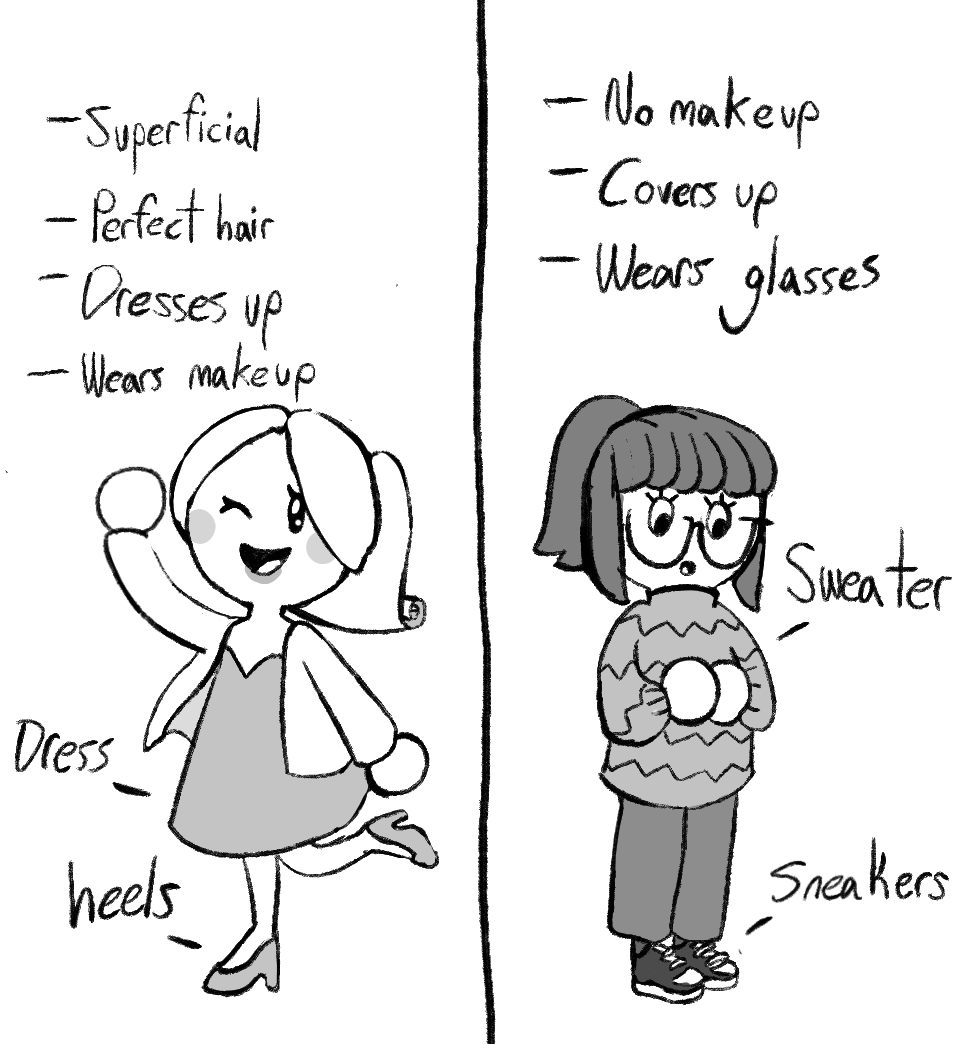If you are a woman, then you probably had a “not like other girls” phase at some point in your life. Maybe you entered your emo phase earlier than most, or maybe you developed an obsession with mermaids or wolves. Either way, it seemed like we all joined together to invent this image of the “typical girl” and subsequently came to hate it.
I distinctly remember my “not like other girls” phase when I was around 11 or 12. I hated all things pink and glittery. I became fixated on the color black, I wore my braids in front of my face because I thought it made me look edgy and mysterious (it didn’t), and most shamefully, I put other girls down for liking the things I deemed “girly”. I even made fun of my friends who years later I realize were much more self-assured than I ever was. They were comfortable with what they liked and knew how to live happily. I didn’t.
Those days are long behind me, and hopefully they are for you too. But how did so many girls fall into this type of thinking? What exactly was this image of the “typical girl”? And why is the “not like other girls” trap so damaging to young girls?
Make no mistake: the “not like other girls” brand of thinking is not new. In the 1950’s, the “Greaser Girl” subculture emerged in response to the heavy conservatism at the time. Women have been trying to separate themselves from the “typical girl” for decades. The only thing that’s changed about the concept is what the “typical girl” really is.
The concept tends to be very broad and take on different images, but in a nutshell, the modern “typical girl” is usually depicted as a blonde, white, promiscuous woman with very little interests outside of the color pink, shopping and Instagram. It’s an image deeply rooted in female stereotypes, slut-shaming and patriarchal standards.
Now, it is completely okay for a woman to have interests that are traditionally seen as feminine. It is okay for a woman to have interests that are traditionally seen as masculine. And it is okay for a woman to have a mixture of both. The spectrum of humanity is one full of many different personalities and unlike what any “pickup artist” will ever admit, women are not a monolith.
It is never okay to put down other women for how they choose to present themselves, but unfortunately, the “not like other girls” brand of thinking is focused entirely around that concept. By calling yourself or someone else “not like other girls”, you imply that other women or the “typical girl” are inferior because they present themselves in a way that is deemed weak or shallow by society’s standards.
This type of thinking also continues the patriarchal belief that femininity and therefore womanhood as a whole is a weakness that must be avoided in order to be strong or capable within society. Especially within most competitive high-level spheres.
So if this way of thinking is so toxic, how has it persisted for so long? Simple: it’s heavily promoted by media directed right towards women. Many Young Adult novels, a genre that has a history of marketing towards young women, are ripe with that “not like other girls” type of thinking. Many female marketed movies and TV shows have that cliche of the “quirky and relatable” main character girl being bullied by the hyper-feminine pink wearing mean girl.
When a certain message is shown over and over and over again, eventually that message will become our reality.
I’m tired of this reality where young girls are taught to treat their womanhood as a personality flaw that must be compensated for, and not a part of their identity to be proud of. It’s time to let the “not like other girls” phase die in the 2020’s. It’s time for women to start supporting women. Because, let’s be honest, who else is?






